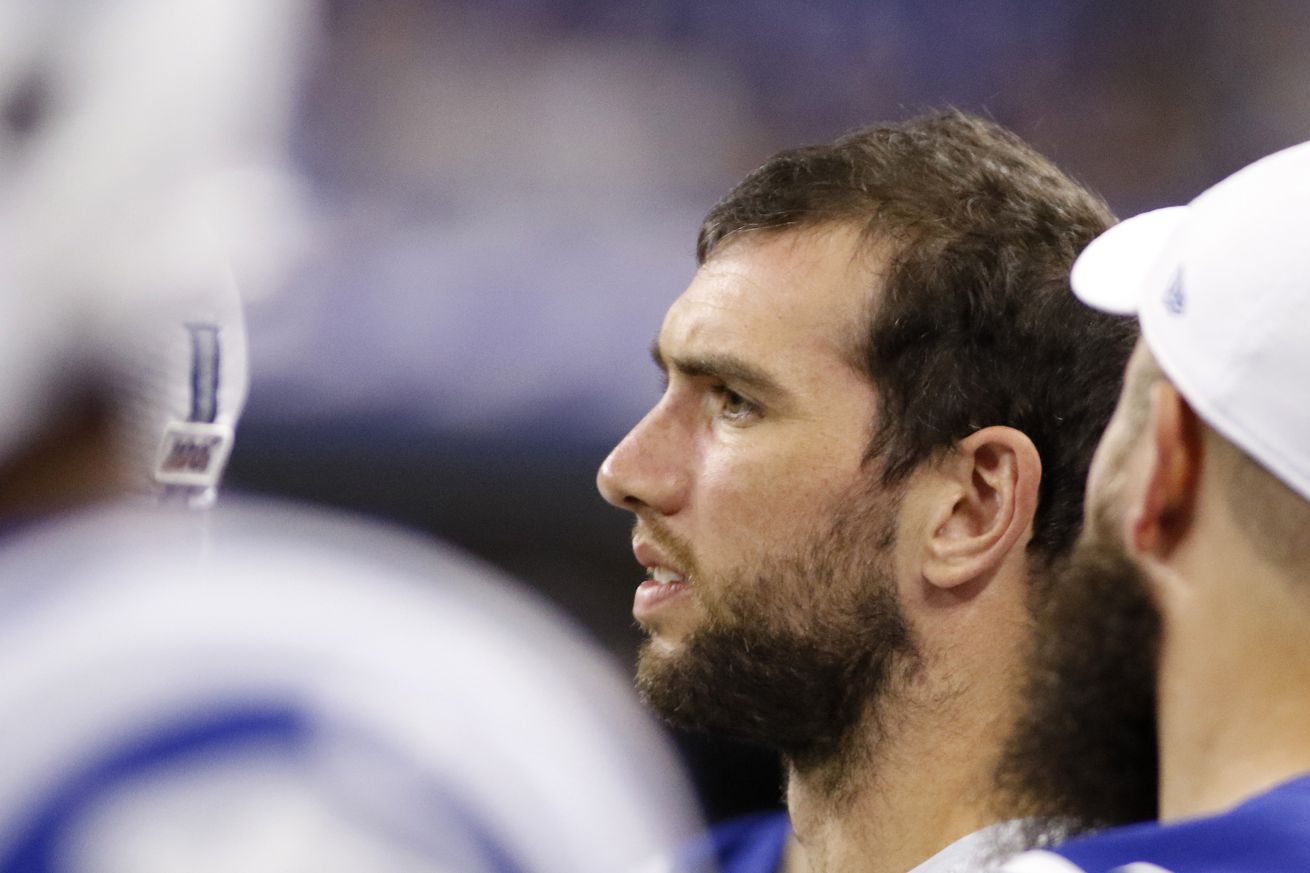Photo by Justin Casterline/Getty Images
Andrew Luck’s decision to walk away taught me about myself
Growing up, I wanted to be Andrew Luck.
As a 12-year-old watching Luck dominate at Stanford then immediately change the NFL as a rookie in Indianapolis, I told my parents that’s the kind of person that I wanted to be. Shoot, I even said I wanted to go to Stanford and major in architecture, just like him.
After reading about his life away from football by ESPN’s Seth Wickersham, I realized that Luck’s process and series of finding himself outside of football sounded a lot like mine.
“What I didn’t allow myself to explore enough was how much I loved football,” he says. Did he love football? He says he did. But all of the attention made him squirm, made him want to break out of a “story that felt written,” he says. There was a media narrative that he led a limitless life — that he could have been an architect, or engineer, or scientist, if he wanted — when his life was actually fiercely limited. How much of your self-identity was tied to being a quarterback? I ask. “A lot. A lot. A LOT. And I didn’t realize that until after the fact,” he says.
The uncoupling process from football is a long road, filled with highs and lows that would put any furious ocean to shame. When you tie yourself to any sport and make it everything you think about, make it every fiber of your being, you have to control every aspect of it so it becomes what you always thought it would be.
I spent my entire life playing football, thinking about playing football. When playing football no longer became a thing in my life, it made me question who I actually was. There were nights where I hated that I quit; hated myself for giving up on a mission that five-year-old me dreamed of.
Andrew Luck’s story of being the true prince that was promised, the prospect that would take the torch from Peyton Manning and lead the Colts into a new era resonates so hard because of the idea of perfection. The pressure of being perfect takes a toll on someone—Luck fought through a myriad of injuries, breaking his body almost to the point of no return, because football had conditioned him to be perfect. The moments of telling family and friends you’re fine despite walking around with injuries that should only come from a car accident. Yet, there’s a paper due on Monday and practice is from 3:30 p.m. to 7:00 p.m., so there’s no time to stop. I felt like I had to be perfect on everything, because if I slipped up even the slightest bit, everything would fall apart.
You had to make yourself feel invincible, just to keep everything in control. I played defensive lineman; I can’t imagine what Andrew Luck had to do in order to remain in control. But the question is, what can be done after the time playing the game you gave everything to ends?
In a lot of ways, what Luck told Wickersham about life after football, then wanting to be back in the game without playing resonated heavily with me. After not playing football, I desperately looked for something that could tie me back into the game, if I couldn’t continue playing. For me, it was writing. Talking about the game with others and helping people learn what was going on became my connection to the sport that I broke myself over. For Luck, it could be coaching.
I guess where I’m going with this is simple: Luck’s retirement was an act of courage, not cowardice. Forcing yourself into playing a game like football that requires being 100% in could result in not only physical debilitation, but mental. Luck chose to protect his body and mind, and has been better for it.
In some ways, it makes me want to be more like him now than I did when I was a kid.













